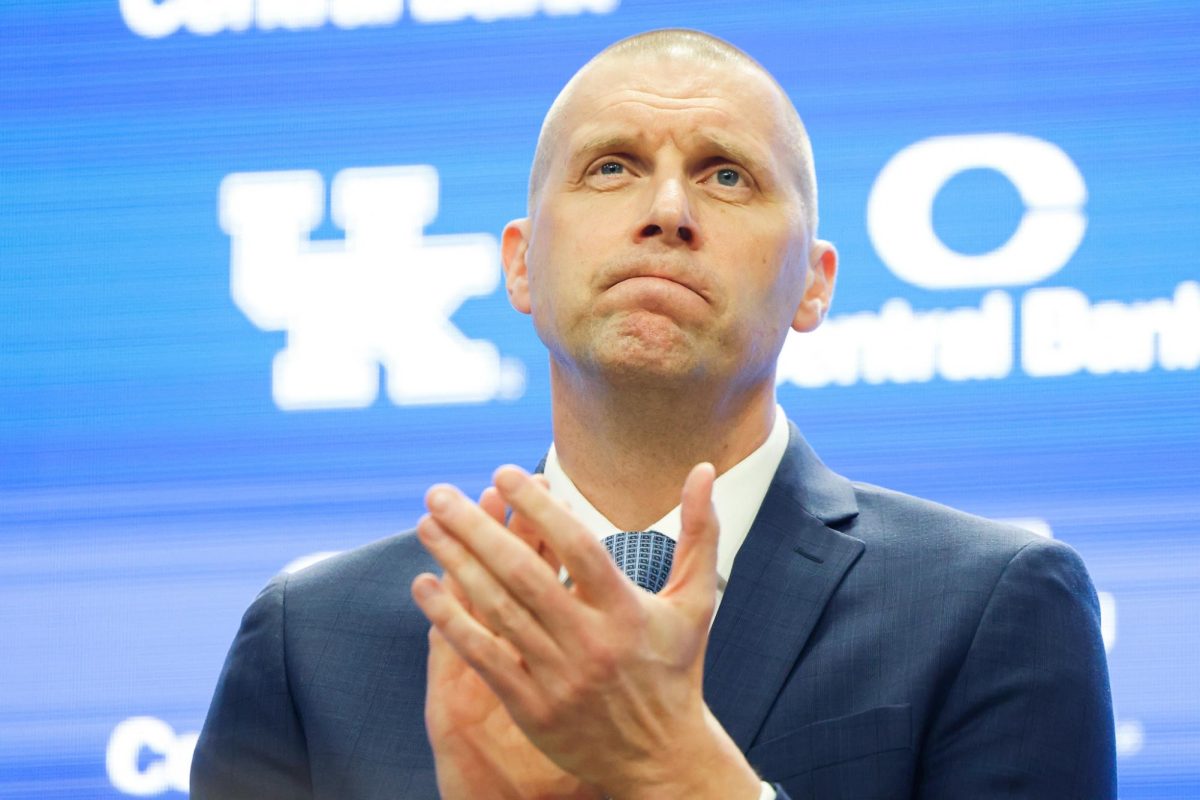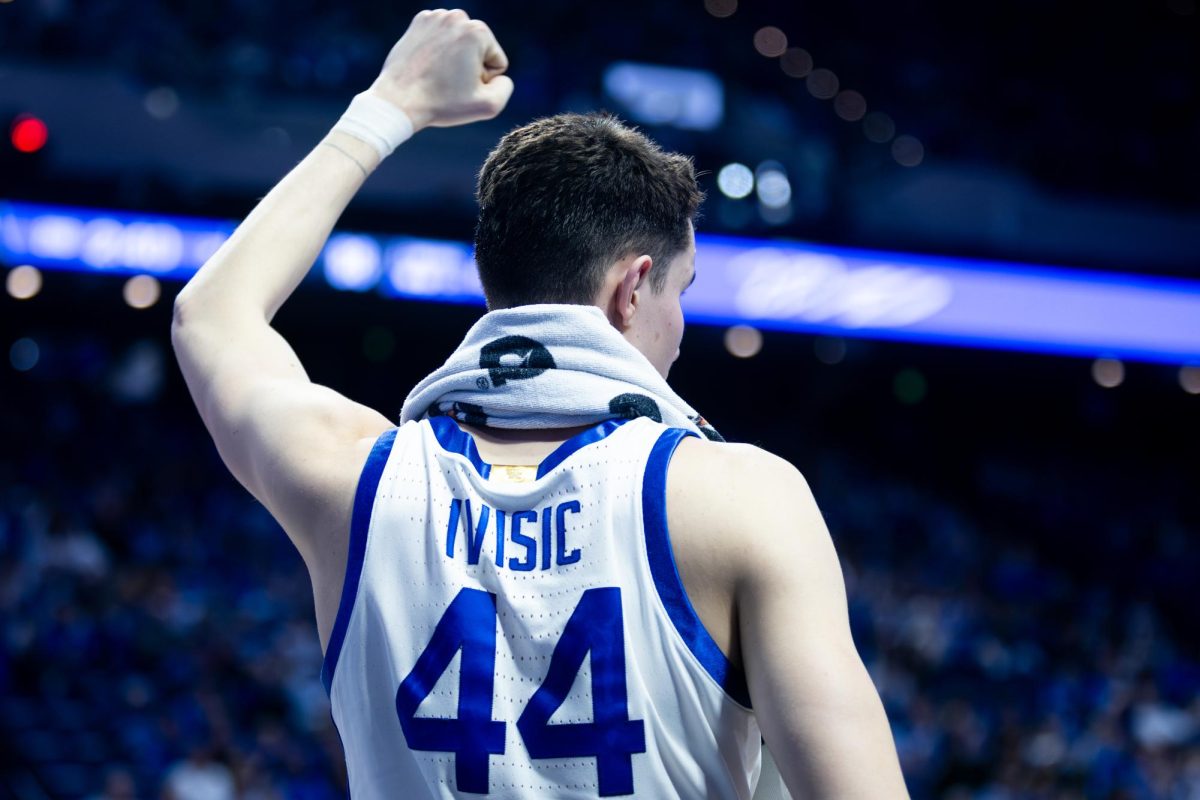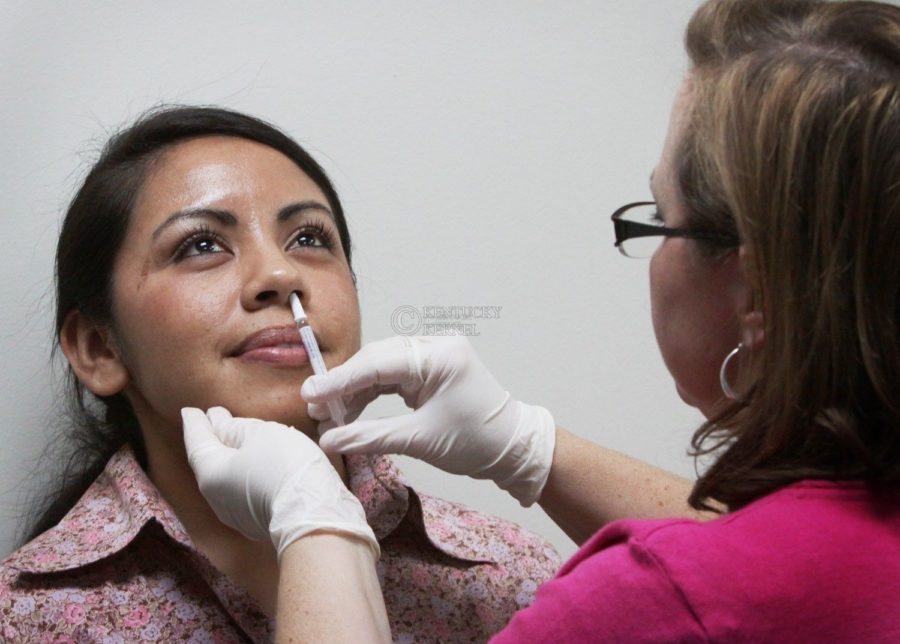Stopping the virus: First batch of H1N1 vaccine arrives
October 14, 2009
By Laura Clark
The H1N1 vaccination has finally made its way to Lexington.
The first batch of 2009 H1N1 Influenza vaccinations arrived at the Lexington-Fayette County Health Department on Tuesday. The batch included 3,000 doses, which will be administered to health care workers first, said LFCHD communications officer Kevin Hall.
Hall said the LFCHD is working with more than 100 Lexington clinics and hospitals, including UK Hospital. Vaccinations will be distributed to clinics and hospitals, where they will be given to health care workers.
The vaccine, which is administered to recipients through both nostrils, contains the live virus and is available to healthy individuals between the ages of 2 and 49, Hall said.
Dr. Chris Nelson, associate professor of pediatrics specializing in infectious diseases, said UK’s head pharmacist picked up 200 doses of the intranasal vaccine Tuesday morning.
“These will be targeted at health care workers at UK through a prioritization plan that we are finalizing,†Nelson said in an e-mail to the Kernel.
Hall said the leftover vaccines will be administered to target groups such as pregnant women and young children. The vaccines are not yet available to the public.
From the LFCHD, 27 volunteers signed up for the vaccine on Tuesday.
Jamie Ward, UK College of Public Health graduate student and a LFCHD nutritionist, volunteered for the vaccine. Ward said once more vaccines are available, mass clinics will be organized to administer them to the Lexington community.
“I’m not sure (when), but (the LFCHD) will work with UK to build those connections in the future,†Ward said.
UK Hospital safety officer Sharon Berry said the university will work with the LFCHD in either providing staff for large clinics or sponsoring one.
Berry said the vaccinations should be arriving at the LFCHD every two weeks if not more often, but because of inconsistencies with the arrival last week, she said no one should “bank on that.â€
“Eventually there will be enough of the vaccine for everyone,†Berry said. “It’s just going to be slow in beginning.â€



























































































































































